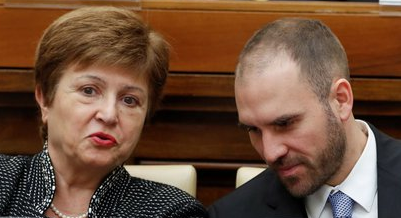Set against a backdrop of swelling tension in exchange markets and fast growing poverty, the Argentine government needs to reach asap an agreement with the IMF to refinance its $44-billion credit line.

Argentina reached already in August a deal with foreign creditors to restructure $66 billion in debt after months of negotiations, and needs now to agree with the IMF on new terms on the repayment of a $44 billion loan agreed in 2018. On his side, the IMF sounds a warning over rising global debt levels and proposed reforms to the debt-restructuring process for countries that struggle to meet their obligations. In this frame, the IMF will carry out a mission on Argentina’s debt restructuring to reach an agreement over a new credit programme. Government officials say they simply want to refinance the $44 billion and that they are not seeking for additional funding.
The Central Bank’s monetary policy and currency controls will be a focal point in the government’s negotiations with the IMF for a new financing programme. To this aim, the Central Bank announced it will end a policy of “uniform devaluation” and allow greater volatility. During the 1st week of October, Argentina announced also a slew of new measures such as cutting taxes on certain crop exports temporarily as the Central Bank was losing reserves at a faster pace in recent days, in part stemming from savers withdrawing dollar deposits. Individual demand for dollars intensified after the government tightened capital controls September 15, and the dollar reached 141 per peso on the black market. Those measures do not seem to cope for now with the larger issues Argentina is dogging.
